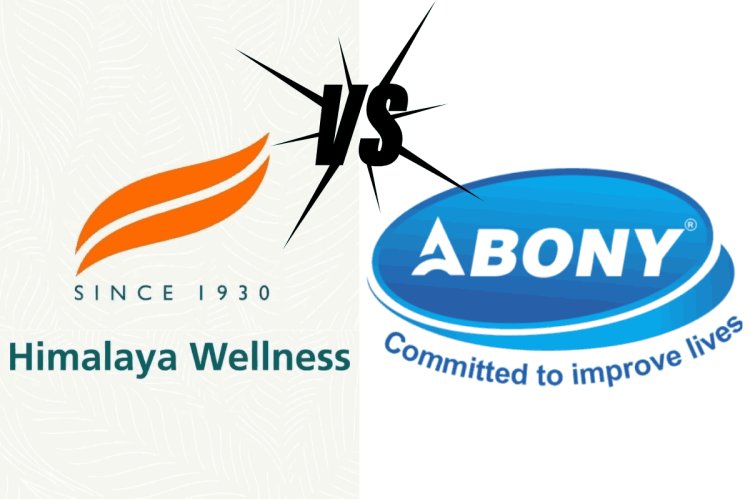Himalaya Wellness Company v. Abony Healthcare Ltd.
In the case of Himalaya Wellness Company v. Abony Healthcare Ltd., 2023 SCC Online Del 6594, the plaintiffs, owners of the registered trademark "LIV.52" since 1957, claimed infringement against the defendants using "LIV.55 DS." The defendants argued unintentional similarities, citing product development during the pandemic. The Court, applying the 'triple identity test' and relying on legal precedents, found the marks deceptively similar, emphasizing the defendants' presumed intent to mislead consumers. The Delhi High Court granted a permanent injunction, prohibiting the use of specific marks and trade dress for liver tonics, highlighting the importance of considering intent in trademark infringement cases.

Himalaya Wellness Company v. Abony Healthcare Ltd.
SCC Online Del 6594
Decided on 17-10-2023
Brief Facts:
The plaintiffs of this case claimed that their registered trademark "LIV.52," which they have owned since 1957, had been infringed upon. They asserted that they had built up a good reputation associated with the "LIV.52" marks over time. The plaintiffs presented sales turnover data, which showed that in the fiscal year 2021-22 alone, products with the "LIV.52" marks had generated revenues of RS. 209.02 crores. The defendants were accused of using the mark "LIV.55 DS" for a similar liver tonic and employing a trade dress that was misleadingly similar to that of the plaintiffs. The visual similarity between the trade dresses of the plaintiffs and the defendants was apparent, with both featuring a thin orange border, a central white strip, and a green lower half of the bottle/package. Additionally, the lettering was also similar.
Contentions of the Parties:
The plaintiffs claimed that the trademarks "LIV 52" and "LIV 55" were deceptively similar and could confuse consumers, especially since they were used on identical-looking liver tonics. They argued that the visual and phonetic similarities between the two marks could lead to trademark infringement. Additionally, the defendants marketed a product called "LIV.999," which the plaintiffs believed could also cause confusion with "LIV.52" or similar products.
On the other hand, the defendants argued that any similarities were unintentional as the products were developed during the COVID-19 pandemic to address various health issues. They emphasized that the products were not yet being sold but were merely listed on e-commerce websites.
Observations of the Court:
The Delhi High Court recently discussed the fundamental principle of the presumption of intent to deceive consumers in cases where a defendant deliberately copies a plaintiff's trademark or trade dress. The Court held that in such cases, the similarities between the marks and products should be scrutinized, rather than the differences. For example, in the case of "LIV.55" and "LIV.999," the High Court found that these marks bore a deceptive resemblance to "LIV.52" and were used for similar liver tonic products, which aligned with the criteria laid out in Section 29(2)(b) of the Trade Marks Act. The Court emphasized that actual sales of the defendant's products were not necessary to establish infringement, as the potential for consumer confusion was enough.
To substantiate its ruling, the Court applied the 'triple identity test' and invoked legal precedents, such as ‘Slazenger & Sons v. Feltham & Co.’ and ‘Munday v. Carey.’ In cases where a defendant deliberately copies a plaintiff's trademark, the presumption is of the intention to mislead consumers. Additionally, the Court relied on ‘Himalaya Drug Company Vs. M/s S.B.L. Ltd.,’ which highlighted the plaintiff's contention that using a mark featuring "LIV" in isolation could encroach upon the plaintiff's trademark.
Overall, the Court's decision underscores the importance of considering the defendant's intent to deceive and the potential for consumer confusion in cases involving trademark infringement.
The Decision of the Court:
The Delhi High Court has ruled in favour of the plaintiffs and has granted a permanent injunction against the use of the marks "LIV.55," "LIVA 55," or "LIV.999," or any other marks or trade dress that may appear to be similar for liver tonics or pharmaceutical preparations. The plaintiffs have also been awarded actual costs for the legal proceedings. The Court found the plaintiffs' claim for costs justified due to the defendants' deliberate use of deceptive marks and trade dress.
Conclusion:
The Delhi High Court's decision in Himalaya Wellness Company v. Abony Healthcare Ltd. reinforces the significance of considering intent in trademark infringement cases. Granting a permanent injunction against the defendants' use of marks and trade dress for liver tonics, the Court highlighted the deceptive resemblance and potential for consumer confusion. The ruling, supported by legal precedents, underscores the need to scrutinize similarities rather than differences, emphasizing the presumption of intent to mislead consumers in cases of deliberate trademark copying.












